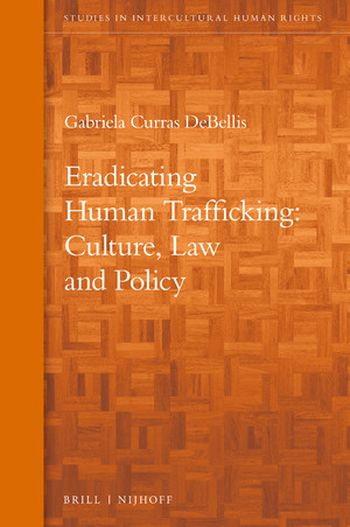
With over 40 million people still enslaved around the world, this book takes a closer look at the role of culture in society and how certain practices, beliefs or behaviors may be fueling human trafficking beyond what the law can curtail. The study reveals cultural elements that conflict with existing anti-human trafficking laws across three case studies (United States, India and Costa Rica). There is no simple answer or a single solution to stop or significantly reduce the crime, but a pragmatic, multi-disciplinary, and human rights approach to the problem may bring to light that, efforts to curtail human trafficking will be in vain if we rely on law alone. A fundamental shift in culture is imperative.